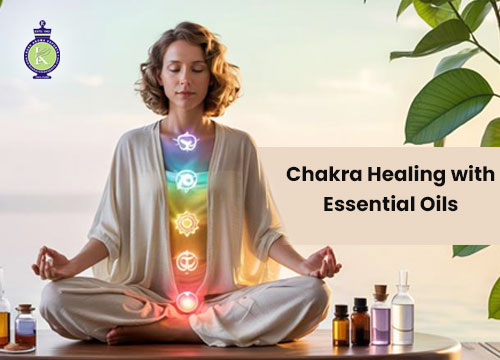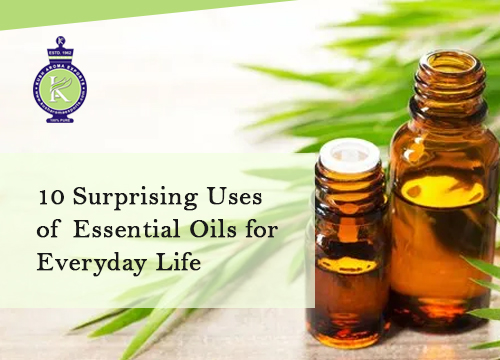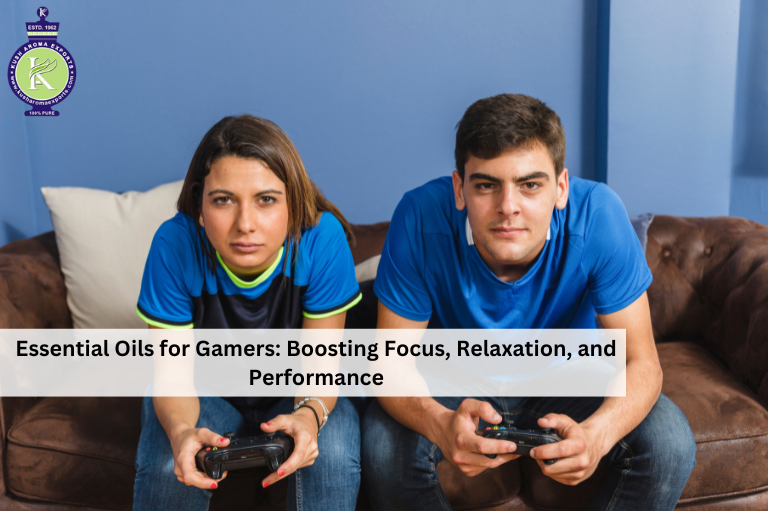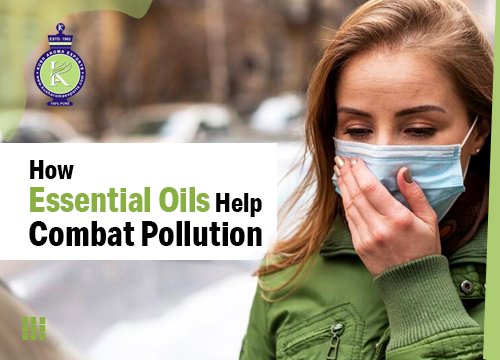Winter often brings challenges to our skin, and our feet are no exception. The cold weather, dry air, and the constant switching between heated indoor environments and the chill outdoors can leave our feet feeling dry, cracked, and uncomfortable. Luckily, essential oils can provide natural and effective solutions for winter foot care, helping to nourish, moisturize, and protect your feet during the colder months. In this blog, we will explore the benefits of essential oils for winter foot care, the best oils to use, and how to incorporate them into your daily routine for healthier, smoother feet.
Why Winter Foot Care is Important?
During winter, the skin on your feet is more prone to dryness and cracking due to the colder weather and lack of moisture in the air. This can lead to uncomfortable conditions like cracked heels, rough patches, and calluses. Additionally, wearing closed shoes, socks, and boots for long periods can cause friction and make the skin on your feet more susceptible to irritation.
Moreover, the lack of exposure to sunlight during the winter months can reduce the skin’s ability to produce vitamin D, which is essential for healthy skin. Combined with the drying effects of indoor heating, your feet can become parched and neglected. Taking proactive measures for winter foot care is essential to keep your feet soft, healthy, and comfortable.
Benefits of Using Essential Oils for Foot Care
Essential oils have been used for centuries in natural health and wellness practices for their therapeutic properties. When applied to the skin, essential oils can provide a variety of benefits, including:
Moisturization: Many essential oils have natural hydrating properties that help replenish moisture in dry skin. These oils can penetrate deep into the skin, providing long-lasting hydration for your feet.
Soothing Relief: Cold weather can cause discomfort in your feet, such as stiffness, aches, or irritation. Essential oils like peppermint and lavender have soothing and cooling effects that can alleviate discomfort and promote relaxation.
Antiseptic and Antifungal Properties: Winter foot care often involves dealing with fungal infections, like athlete’s foot, due to moisture trapped in socks and shoes. Essential oils like tea tree oil have antifungal and antiseptic properties that can help combat these infections and promote healthy feet.
Improved Circulation: Some essential oils, such as ginger and rosemary, are known to improve blood circulation. Regularly massaging these oils into your feet can help stimulate circulation, keeping your feet warm and healthy during the colder months.
Stress Relief: The winter season can bring about stress and fatigue, especially with the busy holiday season. Essential oils like eucalyptus and chamomile can help reduce stress and promote relaxation, providing you with a comforting foot care routine to unwind.
Best Essential Oils for Winter Foot Care
Now that we understand the benefits of essential oils, let’s dive into the best oils for winter foot care. These oils are not only known for their healing and nourishing properties but also for their pleasant aromas, which can elevate your foot care routine.
1. Peppermint Essential Oil
Peppermint oil is one of the most popular essential oils for foot care due to its refreshing and cooling sensation. It contains menthol, which has a soothing effect on tired feet. The oil also has antiseptic and anti-inflammatory properties, making it a great option for reducing foot irritation and inflammation. Peppermint essential oil can also help reduce swelling and improve circulation, leaving your feet feeling revitalized.
How to Use: Add a few drops of peppermint oil to a warm foot soak for a relaxing, cooling treatment. You can also mix it with a carrier oil, such as coconut oil, and massage it into your feet for an energizing foot massage.
2. Lavender Essential Oil
Lavender oil is renowned for its calming and soothing properties. It’s excellent for reducing stress and promoting relaxation, making it perfect for a calming foot care routine after a long day in the cold. Lavender also has antimicrobial and antifungal properties, helping to prevent infections and keeping your feet soft and healthy.
How to Use: Lavender oil can be added to a foot soak or used as part of a moisturizing foot balm. You can also create a DIY foot scrub by mixing lavender essential oil with sugar and coconut oil for exfoliation and hydration.
3. Tea Tree Essential Oil
Tea tree oil is a powerful essential oil with antifungal, antiseptic, and antibacterial properties. This oil is ideal for treating common foot issues, such as athlete’s foot and fungal infections. Its ability to fight germs and bacteria makes it perfect for keeping your feet clean and healthy during the winter months.
How to Use: Add a few drops of tea tree oil to a foot soak, or dilute it with a carrier oil and apply it directly to problem areas. You can also use it as a daily foot spray to prevent fungal infections and maintain freshness.
4. Eucalyptus Essential Oil
Eucalyptus essential oil is well-known for its refreshing and invigorating scent. It can help relieve foot soreness and fatigue by promoting circulation and providing cooling relief. Eucalyptus also has antibacterial properties, making it a great option for keeping your feet clean and free of harmful bacteria during the winter months.
How to Use: Add eucalyptus oil to a foot bath to relieve soreness and stress. You can also massage a diluted blend of eucalyptus oil and carrier oil into your feet to improve circulation and reduce tension.
5. Rosemary Essential Oil
Rosemary oil is not only great for promoting circulation but also for soothing sore muscles. It has a warming effect, making it perfect for cold winter nights when your feet need extra care. Rosemary also has antifungal properties, making it a great addition to your foot care routine to prevent infections.
How to Use: Massage rosemary essential oil mixed with a carrier oil into your feet, focusing on areas where you experience soreness or stiffness. You can also add rosemary to a foot soak for a rejuvenating experience.
6. Chamomile Essential Oil
Chamomile is known for its calming and anti-inflammatory properties, making it an excellent choice for soothing tired feet. Whether you’ve been on your feet all day or have dry, cracked skin, chamomile oil can provide relief and reduce inflammation. Its gentle and comforting scent also helps to relax your mind and body.
How to Use: Add chamomile oil to your foot bath or mix it with a carrier oil for a soothing foot massage. Chamomile oil can also be blended into a foot cream for moisturizing and healing cracked heels.
How to Use Essential Oils for Winter Foot Care
Incorporating essential oils into your winter foot care routine is simple and effective. Here are some ideas on how to use essential oils for the best results:
1. Foot Soaks
A foot soak is an excellent way to relax your feet while allowing the essential oils to penetrate and nourish the skin. To create a simple foot soak, fill a basin with warm water and add 5-10 drops of your favorite essential oil(s). Soak your feet for 15-20 minutes, allowing the oils to moisturize, soothe, and rejuvenate your feet.
2. Foot Scrubs
Exfoliating your feet regularly helps to remove dead skin cells and promote soft, smooth feet. To create a DIY foot scrub, mix sugar or salt with a carrier oil (such as coconut oil or olive oil) and a few drops of your chosen essential oil. Gently scrub your feet in circular motions and rinse with warm water for smooth, refreshed feet.
3. Massage Oils
A foot massage using essential oils is an incredibly relaxing and beneficial way to pamper your feet. Mix 3-5 drops of essential oil with a carrier oil and gently massage into your feet. Focus on areas where your feet feel particularly sore, dry, or tense. Not only will this help soothe tired feet, but it will also promote circulation and hydration.
4. Foot Creams and Balms
You can create your own winter foot cream by mixing a few drops of essential oils with a nourishing carrier oil or body butter. Apply this mixture to your feet before bed for intense hydration and healing overnight. This is especially useful for cracked heels or dry, rough patches of skin.
Final Thoughts
Winter foot care is essential for keeping your feet healthy, soft, and comfortable throughout the colder months. Essential oils offer a natural and effective way to nourish, soothe, and protect your feet, helping to prevent dryness, cracks, and infections. Whether you choose peppermint, lavender, tea tree, eucalyptus, rosemary, or chamomile, each essential oil has its unique benefits that can elevate your foot care routine.
By incorporating essential oils into your winter foot care regimen, you can enjoy soft, smooth, and well-maintained feet all season long. Embrace the power of nature and let essential oils work their magic, leaving your feet refreshed, nourished, and ready to take on the winter months with confidence.












